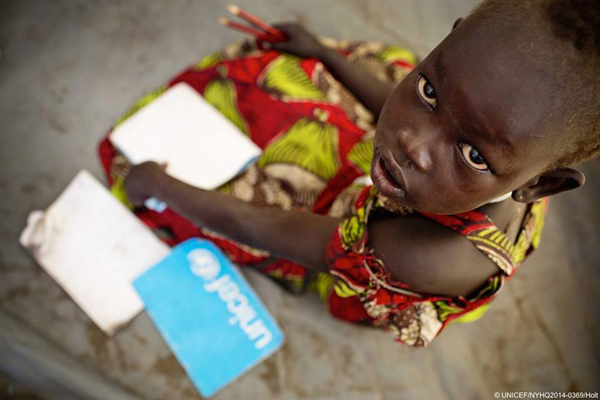
No 'back to school' for millions of children affected by conflict, crisis UN
“For children living through emergencies, education is a life line,” said Josephine Bourne, UNICEF’s head of global education programmes in a statement to the press, which noted that the 30 million children who’s schooling has been derailed by conflict make up about half the worldwide number of out of school children.
“Being able to continue learning provides a sense of normalcy that can help children overcome trauma, and is an investment – not only in individual children, but in the future strengthening of their societies. Without the knowledge, skills, and support education provides, how can these children and young people rebuild their lives - and their communities?”
A third of schools recently surveyed in the Central African Republic have been struck by bullets, set on fire, looted or occupied by armed forces. Over 100 schools were used as shelters for more than 300,000 people displaced during the most recent conflict in Gaza and now require rehabilitation.
Students and teachers have been killed and abducted in northeast Nigeria, including more than 200 abducted school girls who have yet to be released. In Syria, nearly three million children, half the school population, are now not attending classes on a regular basis. And approximately 290 schools have been destroyed or damaged in recent fighting in Ukraine.
Bourne outlined how UNICEF supports emergency education through efforts ranging from temporary classrooms and alternative learning spaces for internally displaced and refugee children, to the provision of millions of notebooks, backpacks and other school supplies.
The agency is also supporting self-directed studies for children who can’t leave their homes and will help provide educational radio programmes for children in Ebola-affected countries.
However, despite these emergency education programmes, many initiatives may remain severely underfunded. A record number of emergencies means that more children than ever are at risk and more resources are needed.
“Last year, global emergency education programmes supported by UNICEF only received 2 per cent of all funds raised for humanitarian action, resulting in a $247 million funding shortfall. Education is an essential part of humanitarian response, requiring support and investment from the very onset of a crisis,” Bourne said.
Thirty million children can’t go back to school because of a record number of conflicts and crises. Photo: UNICEF
Support Our Journalism
We cannot do without you.. your contribution supports unbiased journalism
IBNS is not driven by any ism- not wokeism, not racism, not skewed secularism, not hyper right-wing or left liberal ideals, nor by any hardline religious beliefs or hyper nationalism. We want to serve you good old objective news, as they are. We do not judge or preach. We let people decide for themselves. We only try to present factual and well-sourced news.







